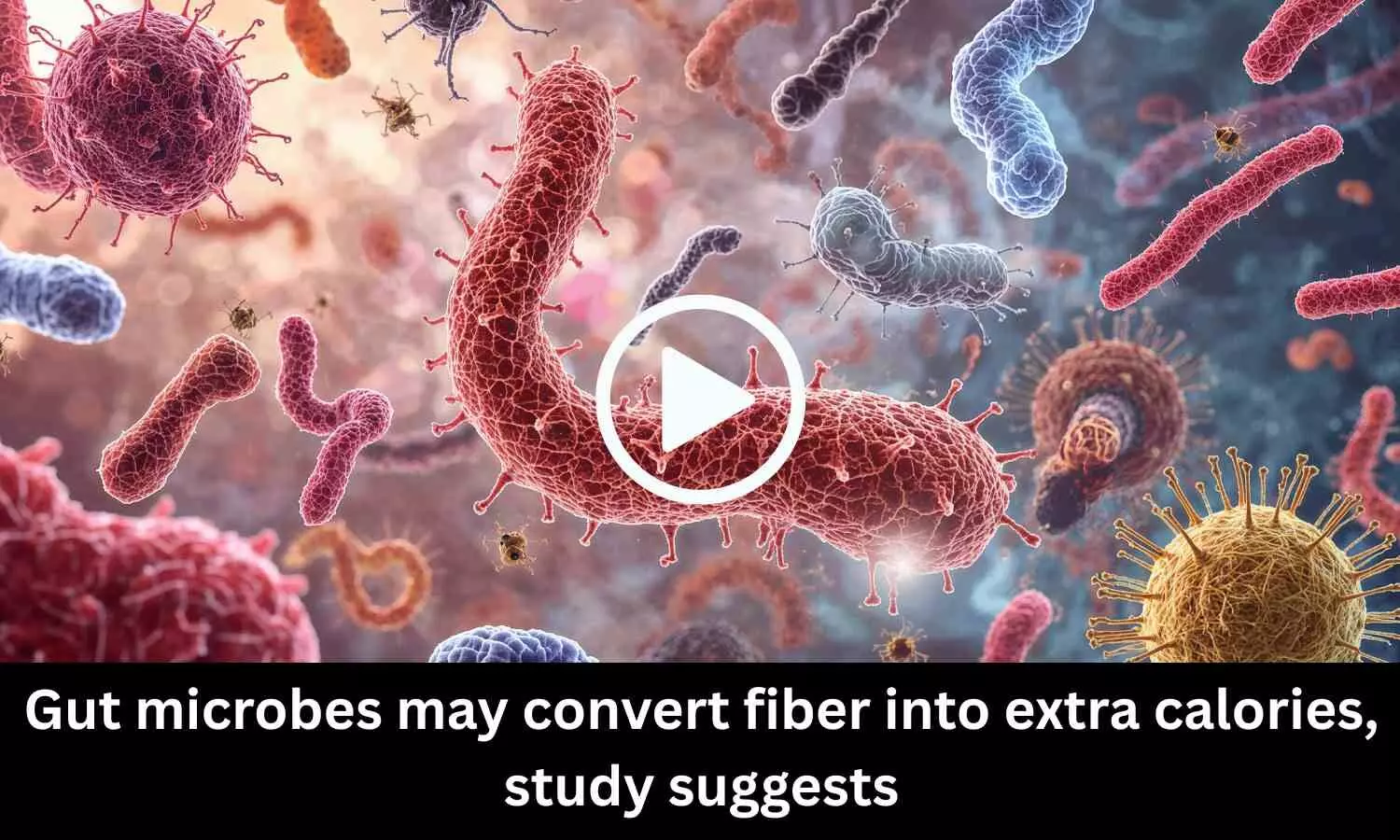Gut microbes may convert fiber into extra calories, study suggests
- byDoctor News Daily Team
- 31 October, 2025
- 0 Comments
- 0 Mins

Scientists at Arizona State University have discovered that certain microbes in the human gut, known as methanogens, influence how efficiently individuals extract calories from high-fiber foods. Published inThe ISME Journal,their research highlights that people whosegut microbiomesproduce more methane absorb more energy from fiber-rich diets, suggesting a novel biomarker for personalized nutrition. The gut microbiome, the community of microorganisms living in the digestive tract, breaks down food components the body cannot digest alone. One key function is fermenting dietary fiber into short-chain fatty acids (SCFAs), an important energy source. Methanogens consume hydrogen produced during this fermentation, releasing methane gas as a byproduct and maintaining chemical balance. This microbial activity appears to enhance energy absorption. In collaboration with the AdventHealth Translational Research Institute, researchers enrolled participants who followed two controlled diets of equal macronutrient content but differing in fiber: a processed,low-fiber dietand a whole-food, high-fiber diet. Each participant spent six days inside a whole-room calorimeter-a sealed chamber that continuously measured metabolic rates and methane emissions via breath and other routes-allowing precise tracking of energy use and microbial methane production. Blood and stool samples were collected to assessmetabolism, microbial activity, and SCFA levels. Results showed that participants generally absorbed fewer calories from the high-fiber diet than from the processed diet. However, individuals with higher methane production absorbed significantly more calories from fiber, linked to elevated SCFAs in the gut. Methane production may thus serve as an indicator of efficient fiber fermentation and calorie extraction. Lead author Blake Dirks noted that these findings emphasize how the gut microbiome shapes individual metabolic responses to diet, underscoring the potential for personalized nutrition interventions to optimize health outcomes based on microbial composition. REFERENCE:Blake Dirks, Taylor L Davis, Elvis A Carnero, Karen D Corbin, Steven R Smith, Bruce E Rittmann, Rosa Krajmalnik-Brown. Methanogenesis associated with altered microbial production of short-chain fatty acids and human-host metabolizable energy. The ISME Journal, 2025; 19 (1) DOI: 10.1093/ismejo/wraf103
Disclaimer: This website is designed for healthcare professionals and serves solely for informational purposes.
The content provided should not be interpreted as medical advice, diagnosis, treatment recommendations, prescriptions, or endorsements of specific medical practices. It is not a replacement for professional medical consultation or the expertise of a licensed healthcare provider.
Given the ever-evolving nature of medical science, we strive to keep our information accurate and up to date. However, we do not guarantee the completeness or accuracy of the content.
If you come across any inconsistencies, please reach out to us at
admin@doctornewsdaily.com.
We do not support or endorse medical opinions, treatments, or recommendations that contradict the advice of qualified healthcare professionals.
By using this website, you agree to our
Terms of Use,
Privacy Policy, and
Advertisement Policy.
For further details, please review our
Full Disclaimer.
Recent News
Scientists discover a hidden antibiotic 100 times...
- 31 October, 2025
Gut microbes may convert fiber into extra calories...
- 31 October, 2025
Who's eligible for faculty appointment? NMC clarif...
- 31 October, 2025
AMU JN Medical College launches code blue emergenc...
- 31 October, 2025
Daily Newsletter
Get all the top stories from Blogs to keep track.


0 Comments
Post a comment
No comments yet. Be the first to comment!